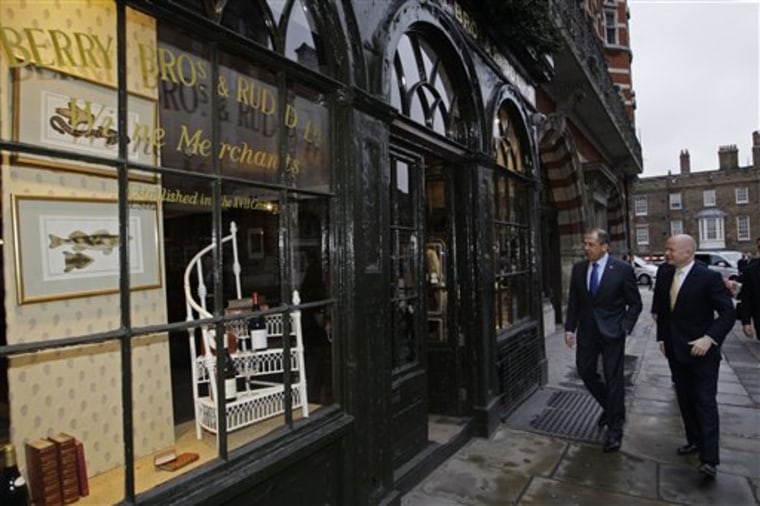Russia's foreign minister said Tuesday the U.S. and Western allies should not stir up pro-democracy protests in the Middle East following the uprisings in Egypt and Tunisia.
After meeting with members of Britain's government, Sergey Lavrov warned against any attempts by other nations to fuel public dissent.
In recent days Iran's opposition has taken to the streets of central Tehran, while demonstrators have held protests in Bahrain and Yemen.
"We are convinced that calls for revolutions are counterproductive. We have had more than one revolution in Russia, and we believe that we don't need to impose revolutions on others," Lavrov told reporters. "We don't think that we need to tighten the screw, or take sides."
Lavrov was holding talks with Prime Minister David Cameron and Foreign Secretary William Hague, and seeking to bolster ties badly damaged by the 2006 poisoning death in London of dissident ex-Russian security agent Alexander Litvinenko. On his deathbed, Litvinenko blamed then-Russian President Vladimir Putin for authorizing his poisoning.
At a news conference with Hague, Lavrov insisted the international community should restrict itself to urging regimes in the Middle East and northern Africa to hold talks aimed at meeting the demands of protesters.
"Only in this way we can ensure the stable evolution into the direction that will be in the interests of each country," Lavrov said.
In response to a question about remarks made by President Barack Obama and U.S. Secretary of State Hillary Clinton, Lavrov said Russia believed it was wrong for nations to encourage others to "impose democracy, or some specific pattern, and we hear such encouragement."
Lavrov also criticized Europe, the U.S. and others for imposing additional sanctions against Iran, which go beyond measures agreed by the U.N. Security Council. He said Russia would be unlikely to support any new U.N. sanctions that were not tightly targeted at specific individuals or companies.
"It undermines our joint work," Lavrov said, referring to additional sanctions imposed by the EU and U.S. "If we agree to stick to a collective agreed position, we should not deviate from that."
Though Hague has raised the prospect of additional U.N. sanctions against Iran following failed talks on its disputed nuclear weapons program, Lavrov said Russia could not support them because of their impact on ordinary Iranians.
"Further sanctions would mean the creation of social problems for the population. We would not be able to support them," he said.
However, the ministers signed a treaty agreeing to upgrade a secure communications link between London's Downing Street and the Kremlin, Hague said. He confirmed plans for greater collaboration on thwarting organized crime and projects aimed at tackling the radicalization of young Muslims.
Hague and Lavrov later sealed their meeting with a whisky tasting at exclusive wine merchant Berry Bros. and Rudd. They confirmed Cameron will visit Moscow later this year on the invitation of Russian President Dmitry Medvedev.
"Our countries continue to see a steady, patient improvement in relations. It will take time, there will be no giant leaps," Hague said. He acknowledged the two countries still have major disagreements on some issues.
Hague's ministry confirmed there would be no change on Britain's policy of not cooperating with Russia's Federal Security Service, the main successor to the feared Soviet KGB, and known by its Russian language acronym, the FSB.
The U.K. broke off ties between its intelligence agencies and the FSB following Litvinenko's death.
Russia has repeatedly refused to grant British requests for the extradition of the chief suspect in the case, ex-KGB agent Andrei Lugovoi. In turn, Moscow accuses Britain of refusing to turn over dozens of alleged criminals to Russia.
